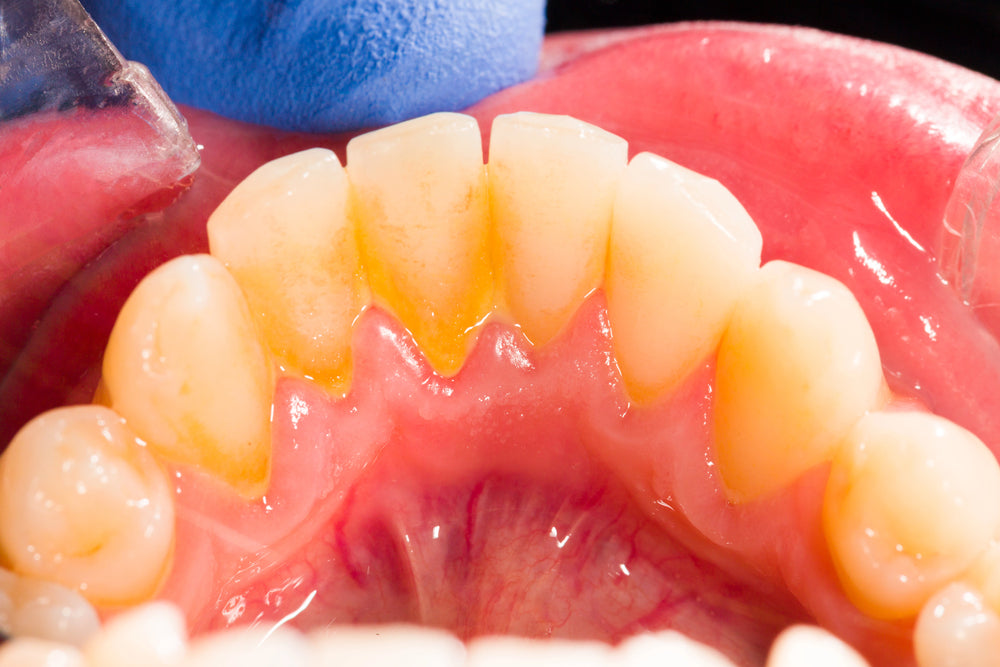
What is Dental Plaque?
|
Time to read 4 min
Published on
|
Time to read 4 min
Dental plaque is a sticky and colorless or light yellow film that's constantly forming over the teeth. The bacteria could cling to Plaque and produce acids which may cause tooth decay.
The formation of plaque begins on the teeth after 4-12 hours of brushing . That’s why it's crucial to practice a good oral hygiene routine and regular dental hygiene that can assist in removing and avoiding plaque. The plaque, which is made up of bacteria, develops between your teeth as well as on the line of your gums.
Scientists use the "biofilm" term for plaque because it's actually a living microbe that is surrounded by a sticky polymer layer. The sticky coating aids in helping microbes to attach to the surfaces inside your mouth and are able to grow into vibrant micro colonies.
Are you worried about the formation of dental plaque and the effects of plaque on the teeth ? Don’t worry, plaque is extremely prevalent, and it is possible to effectively control and treat the formation of plaque by using Advanced Oral Health Care Products.
What causes plaque on teeth? It's bacteria. Certain bacteria can be beneficial, but some can accumulate on your teeth's surfaces and form a plaque biofilm. It's usually located near your gum line. Although it's common and normal, it is important to keep the sugar from mixing with it. The bacteria feed off sugars and produce acids that can cause plaque on teeth.
Plaque and tartar are both dental conditions and can affect oral health .
Plaque is a sticky film that continually forms on teeth and gums, typically consisting of bacteria, food debris, and saliva. Plaque can lead to tooth decay, gum disease, and bad breath when left unremoved on a regular basis. Plaque can be removed easily by brushing your teeth regularly.
Tartar (Calculus): Tartar is a harder form of plaque that occurs when plaque isn't adequately removed from teeth.
Unfortunately, tartar cannot be removed through regular dental hygiene practices alone! You need to visit the dentist.
Discover More: What Are Teeth Made Out Of | Teeth Vs Bone
Do you know? How Can Plaque on Teeth Affect My Oral Health? Here are the primary consequences of plaque accumulation
Effective bad breath remedies include:
Gentle and regular scraping of the tongue
Regular oral care practices such as daily brushing and flossing
Professional deep cleanings and plaque removal
The ongoing use of oral probiotics.
One, the probiotics compete with the existing bad bacteria and reduce their presence by “crowding them out”
Two, the probiotics produce BLIS or “bacteriocin-like-inhibitory-substances” which is a technical way of stating that one probiotic strain (bacteria) can produce a substance that inhibits or kills off other bacteria. Three, by working to control gingivitis, gum disease and tooth decay these probiotics reduce the very sources of bacteria-generated odors in the mouth.
Studies have shown a clear reduction in plaque levels and gingivitis symptoms when oral probiotics were administered to patients with moderate to severe gingivitis.